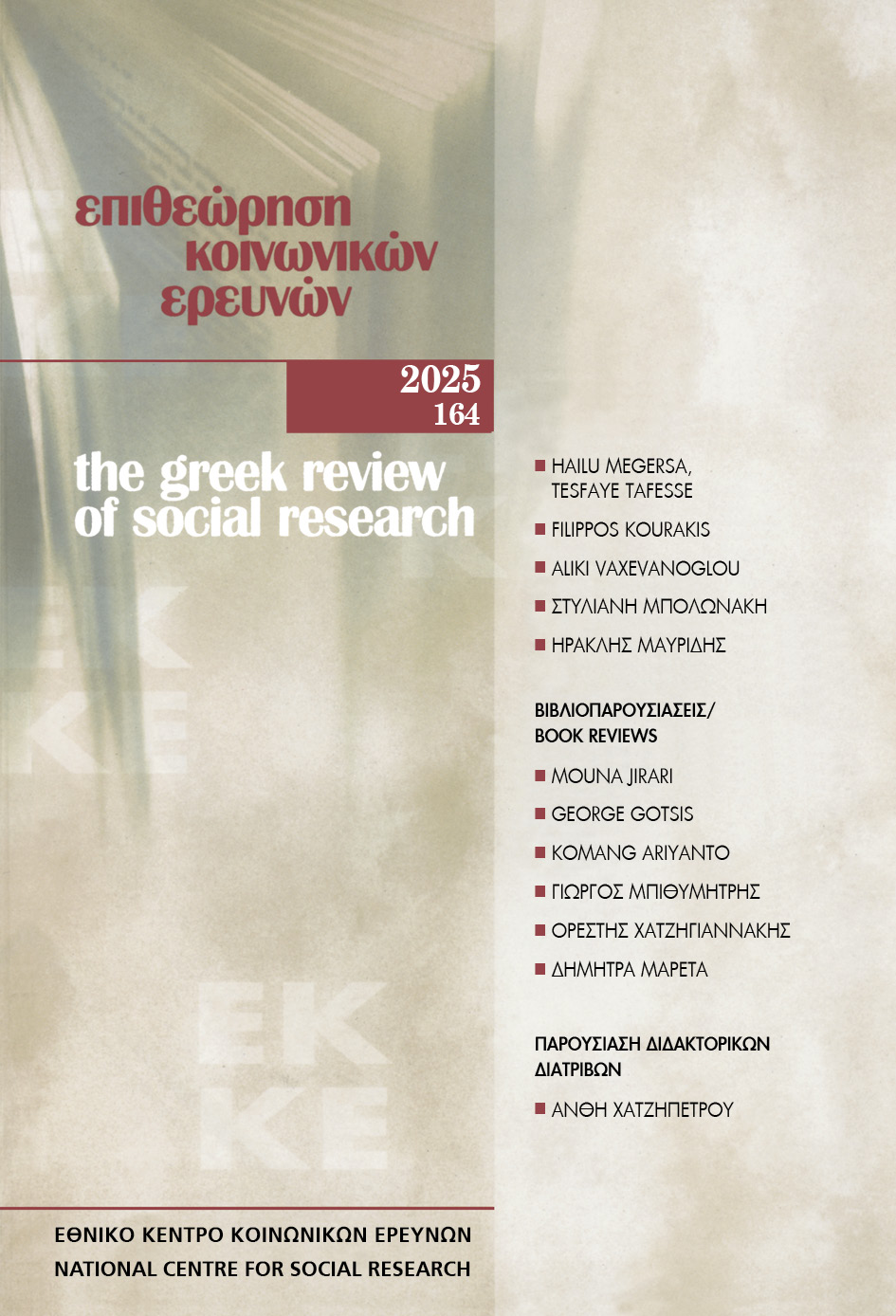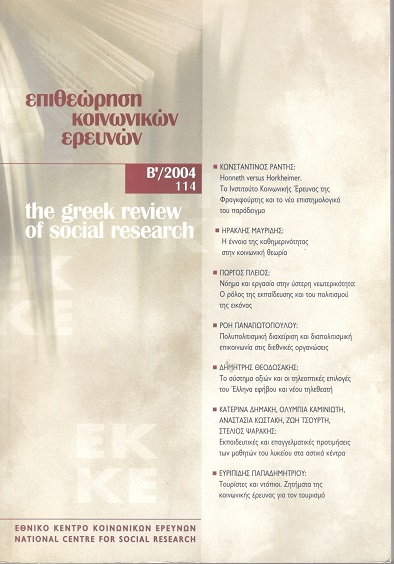O λαϊκισμός ως ιδεολογία: σχέσεις και σκέψεις

Περίληψη
Η εργασία αυτή είναι μια πρώτη προσέγγιση στο σύνθετο ζήτημα των σχέσεων μεταξύ λαϊκισμού και ιδεολογίας μέσα από δύο συγκεκριμένες εννοήσεις της ιδεολογίας. Συγκεκριμένα, συζητάμε μια σειρά από ιδέες που αφορούν εννοιακά προβλήματα αλλά και λειτουργίες της ιδεολογίας μέσα στο κοινωνικο-πολιτικό πεδίο και διαπιστώνουμε ότι υπάρχουν ομοιότητες και αντιστοιχίες μεταξύ των δύο μορφών του λόγου, προτείνουμε δε, συμβατικά, ότι ο λαϊκισμός μπορεί να θεωρηθεί μορφή του ιδεολογικού λόγου, ίσως όχι με την έννοια της «σκληρής» πολιτικής ιδεολογίας αλλά με την έννοια μιας «λεπτής» ιδεολογίας.
Λεπτομέρειες άρθρου
- Πώς να δημιουργήσετε Αναφορές
-
Μαυρίδης Η. (2025). O λαϊκισμός ως ιδεολογία: σχέσεις και σκέψεις. Επιθεώρηση Κοινωνικών Ερευνών, 164, 121–144. https://doi.org/10.12681/grsr.40200
- Τεύχος
- 2025: 164
- Ενότητα
- Άρθρα

Αυτή η εργασία είναι αδειοδοτημένη υπό το CC Αναφορά Δημιουργού – Μη Εμπορική Χρήση 4.0.
Οι συγγραφείς των άρθρων που δημοσιεύονται στην Επιθεώρηση Κοινωνικών Ερευνών διατηρούν τα δικαιώματα πνευματικής ιδιοκτησίας επί των άρθρων τους, δίνοντας στο περιοδικό το δικαίωμα της πρώτης δημοσίευσης. Άρθρα που δημοσιεύονται στην Επιθεώρηση Κοινωνικών Ερευνών διατίθενται με άδεια Creative Commons 4.0 και σύμφωνα με την άδεια μπορούν να χρησιμοποιούνται ελεύθερα, με αναφορά στο/στη συγγραφέα και στην πρώτη δημοσίευση για μη κερδοσκοπικούς σκοπούς.
Το Εθνικό Κέντρο Κοινωνικών Ερευνών διατηρεί το δικαίωμα να δημοσιεύει, να αναπαραγάγει, να παρουσιάζει στο κοινό, να διανέμει και χρησιμοποιεί άρθρα που δημοσιεύονται στην Επιθεώρηση Κοινωνικών Ερευνών σε οποιοδήποτε μέσο και μορφή είτε μεμονωμένα είτε ως μέρη συλλογικών έργων, για όλο τον χρόνο διάρκειας προστασίας της πνευματικής ιδιοκτησίας και για όλες τις χώρες του κόσμου. Αυτό περιλαμβάνει ενδεικτικά και όχι αποκλειστικά το δικαίωμα δημοσίευσης των άρθρων σε τεύχη της Επιθεώρησης Κοινωνικών Ερευνών, αναπαραγωγής και διανομής μεμονωμένων αντιγράφων των άρθρων, αναπαραγωγής ολόκληρων των άρθρων σε άλλη έκδοση του Εθνικού Κέντρου Κοινωνικών Ερευνών, καθώς και αναπαραγωγής και διανομής των άρθρων ή περίληψης αυτών με χρήση πληροφορικού συστήματος αποθετηρίου.



